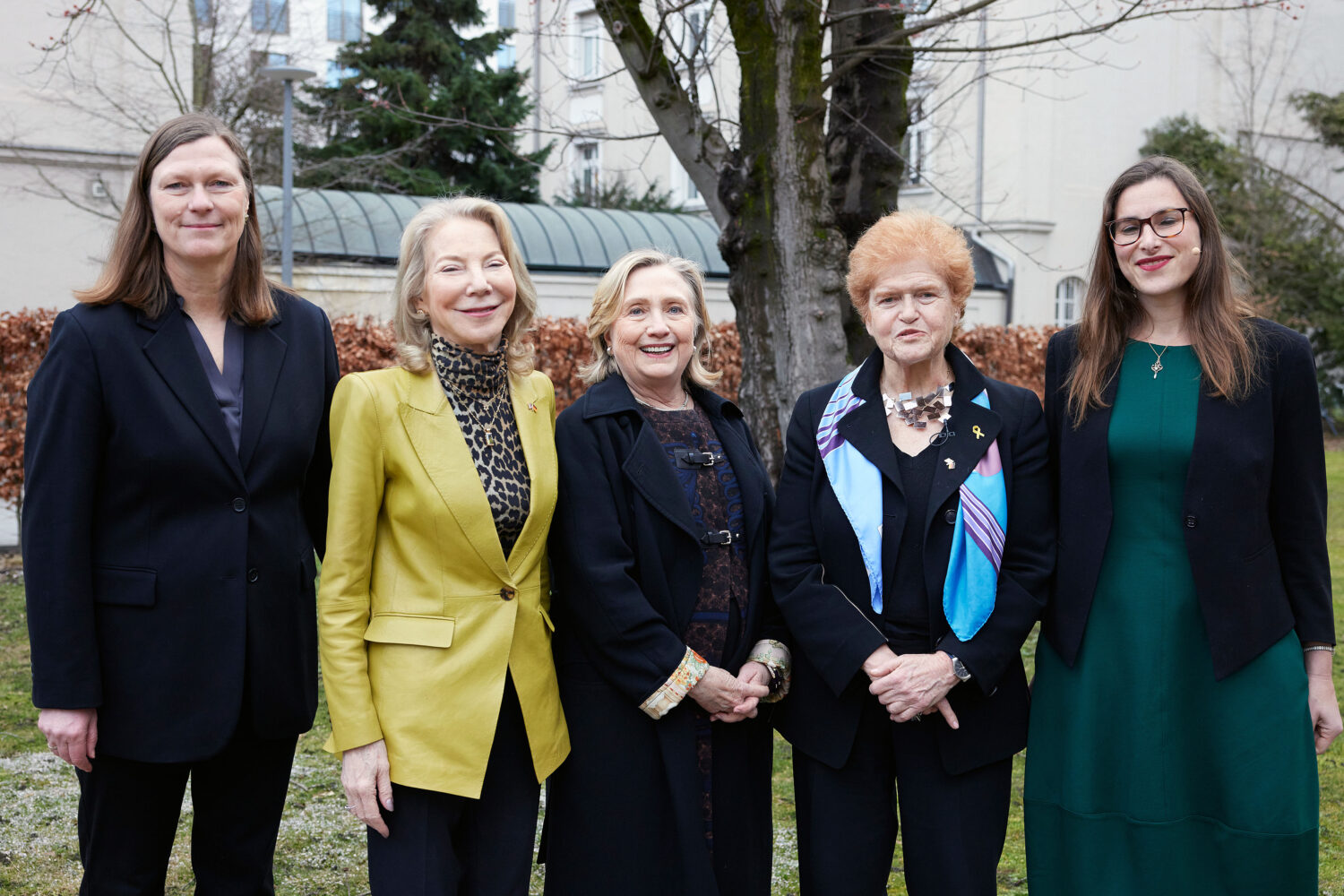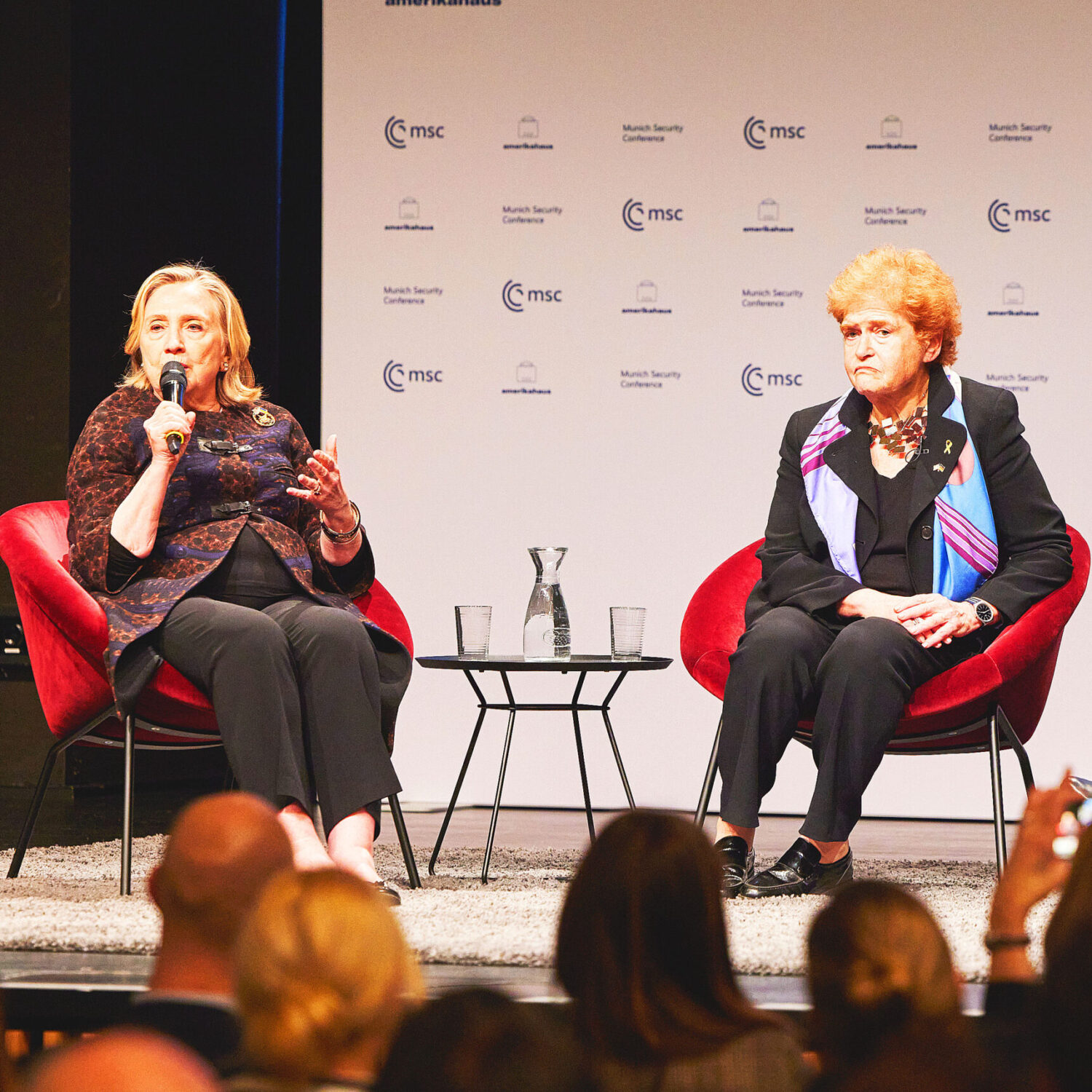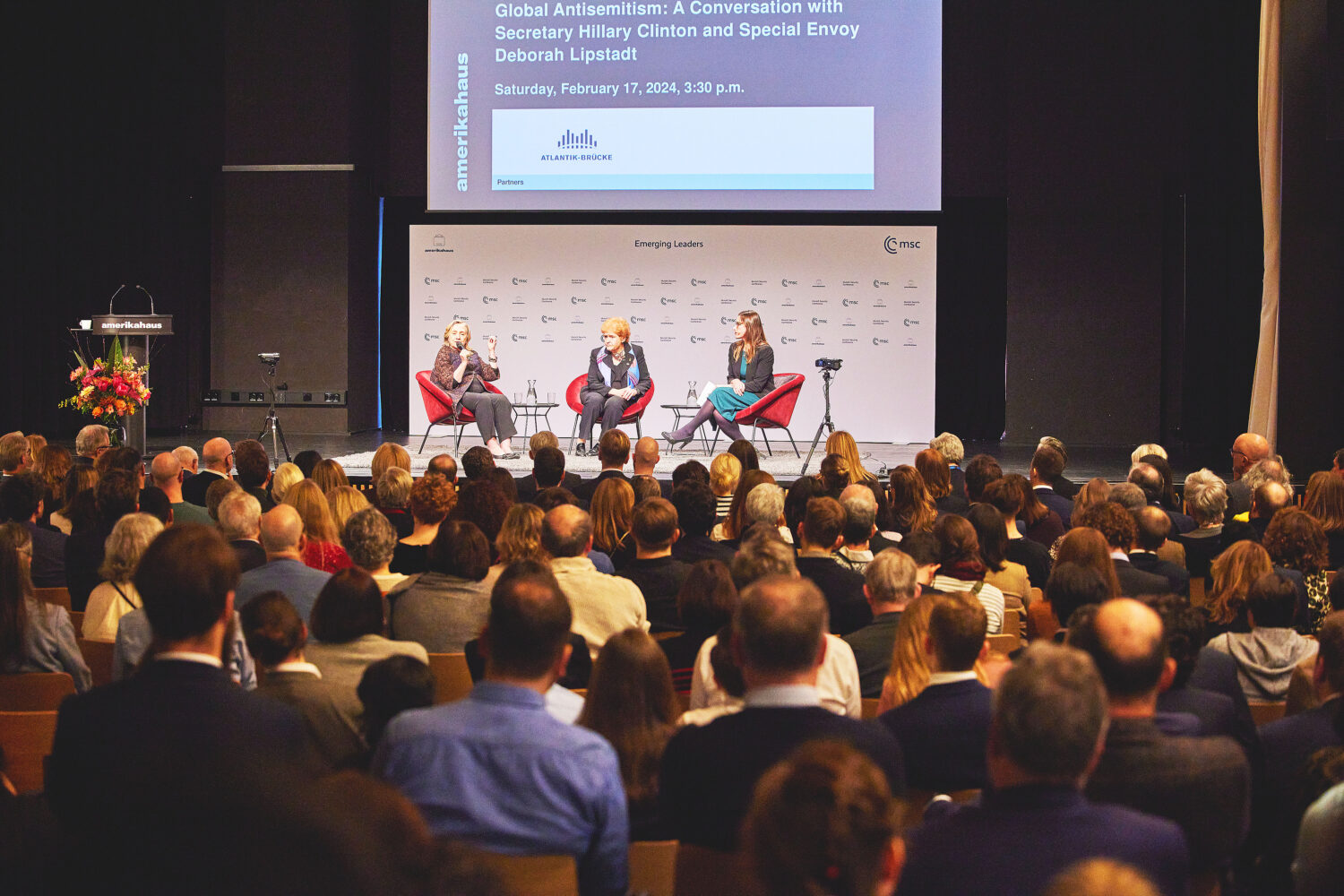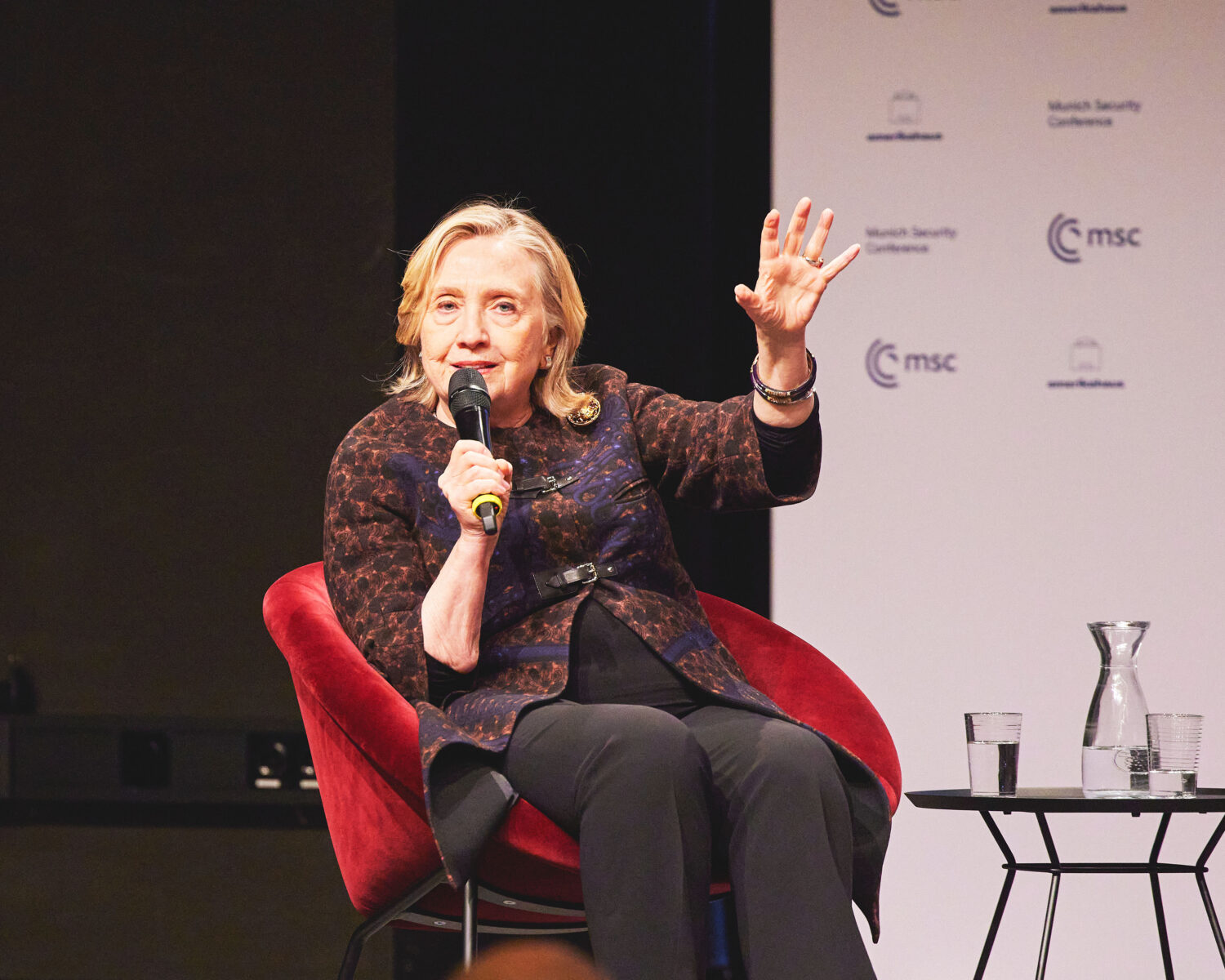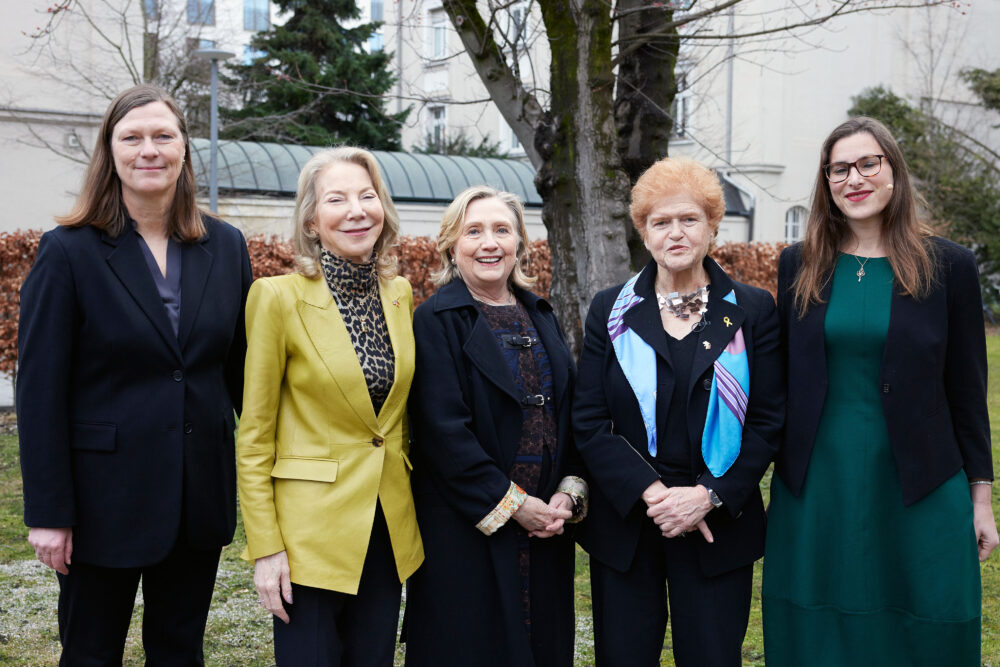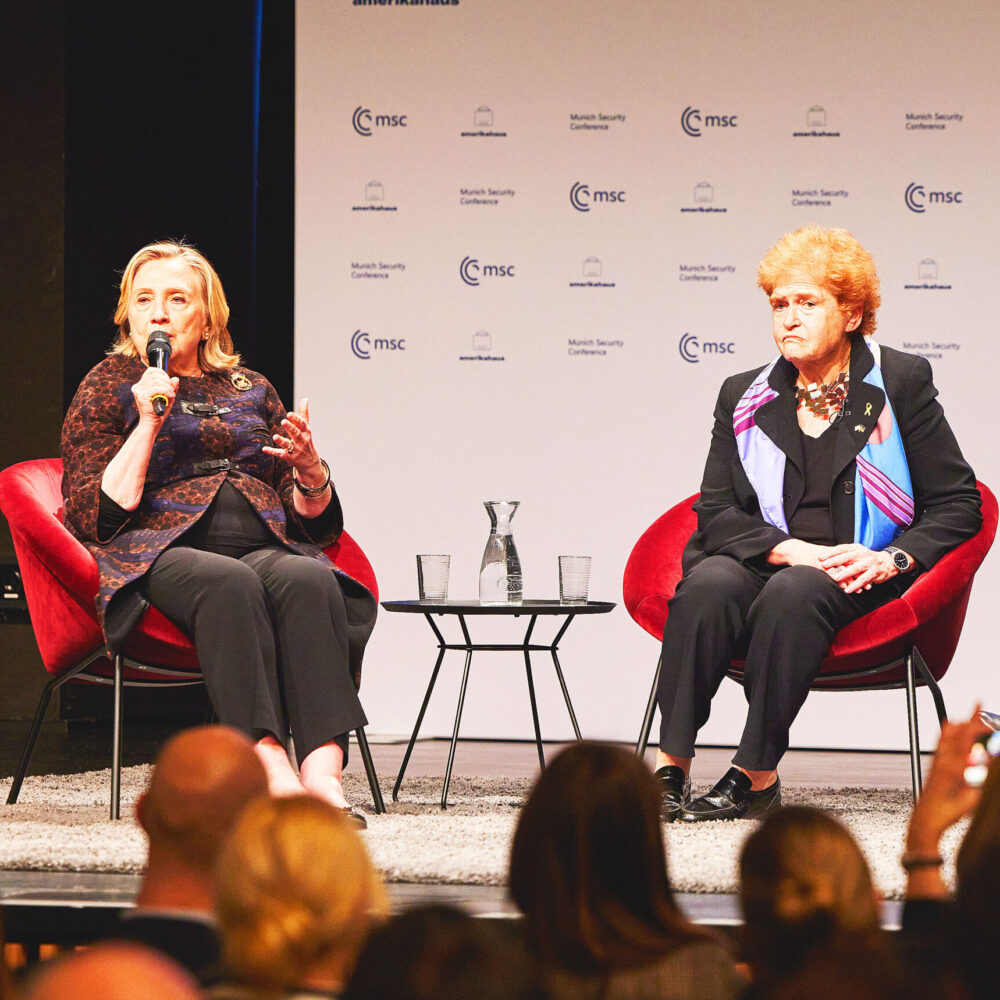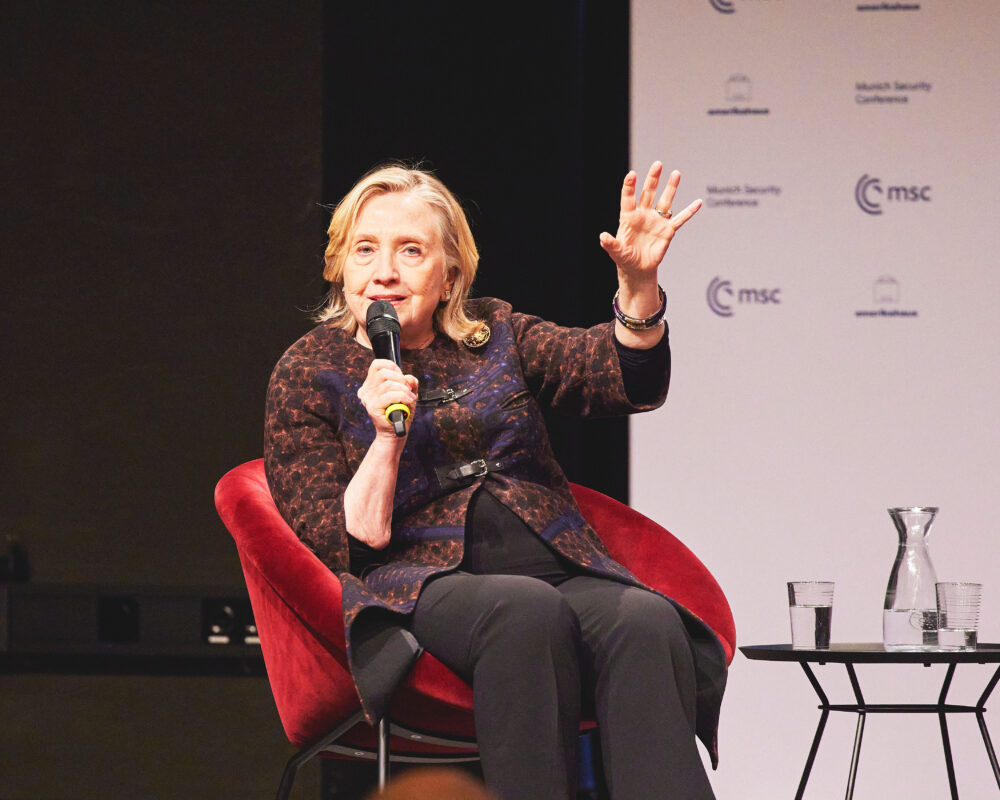Clinton and Lipstadt: Combating Antisemitism
In recent months, the world has witnessed an alarming increase in antisemitic incidents and rhetoric, arguably the worst such spike since the Second World War. On the sidelines of the Munich Security Conference 2024, Secretary Hillary Clinton and Special Envoy Deborah Lipstadt sat down with Atlantik-Brücke CEO Julia Friedlander in the Amerikahaus München and discussed the sources of contemporary antisemitism, how antisemitism is all too often a bellwether of the fragility of a democracy, and the national security and societal imperatives of combating the “oldest hatred.” The conversation was introduced by opening remarks by Meike Zwingenberger, CEO of Amerikahaus, and the U.S. Ambassador to Germany Amy Gutmann.
On October 7th, 2023, Hamas terrorists invaded Israel from the Gaza strip and committed the deadliest attack against Jews since the Holocaust. The degree of glee and barbarity with which the terrorists murdered and slaughtered that day even surprised Ambassador Deborah Lipstadt who has dedicated her entire career on the study of antisemitism. And as Secretary Clinton noted, the high degree of planning and organization behind the attack, all in order to kill and mutilate as many innocent civilians as possible, was particularly abhorrent.
“There is an invidious strain of antisemitism that has never gone away, but we had hopes it had been certainly submerged, that had been poking its head up for quite some time now.” Hillary Clinton
What happened in the days, weeks, and months after the attack up until today was similarly surprising, abhorrent, and organized. Both Secretary Clinton and Ambassador Lipstadt pointed out that antisemitic outbursts celebrating the Hamas massacres in demonstrations and the online world happened within days or even hours after the attack, long before Israel went into Gaza. This underscored, in Secretary Clinton’s view, that “this was not spontaneous, this was highly organized” by groups that “had been on alert before October 7th”. In this sense, October 7th put the spotlight on the fact that “there has been a growing movement of antisemitism in many places in the world.”
But besides the outright antisemitic clamor, there was also a horrifying silence in the aftermath of October 7th: “More horrific, however, [than the gender-based violence against women on October 7th itself] was the silence of the feminist organizations [and] the human rights organizations”, Ambassador Lipstadt said to call out the antisemitic hypocrisy of many organizations which deem themselves progressive. The only difference between the attacks against women of October 7th and similar attacks in the past, where these organizations were highly outspoken, the Ambassador noted, was the perception that the victims of October 7th were Jewish.
A Different Kind of Hatred
The striking fact that antisemitism is virulent and rising in all parts of society, including those which are otherwise considered highly aware toward of racism and hatred, indicates that antisemitism is not merely another form of racism, but structurally a different kind of hatred. While antisemitic discrimination in many ways resembles racist discrimination – Secretary Clinton pointed to the similarities between the antisemitic legislation of Nazi Germany 1933-1939 and the Jim Crow laws enforcing racial segregation in the southern United States up until 1965 –, antisemitism functions in a specific way: The antisemite, Ambassador Lipstadt explained, “punches up” against the Jews imagined as superior, powerful, and deceitful; the racist “punches down” against black people imagined as inferior, not smart enough and incapable.
This insight helps a great deal in understanding why antisemitism is not only virulent in right-wing white supremacy circles, where racism and antisemitism come together in conspiracy myths like the “Great Replacement Theory” according to which Jews are staging behind the scenes the mass immigration of non-white people into western societies in order to destroy them, but also connecting with rather left-wing, liberal or progressive milieus. The idea of an all-too-powerful, deceitful force as an oppressor can be easily smoothed into a worldview that is largely based on the distinction of oppressor and oppressed. This is how age-old antisemitic tropes like the blood libel also found their way into the discourse about the Israeli-Palestinian context before and after October 7th, often poorly disguised as mere criticism of the Israeli government.
“Antisemitism is a threat to democracy and national stability. If you buy into the conspiracy myth which is at the heart of antisemitism, that Jews control the banks or the electoral system, you have given up on democracy. Authoritarian governments love antisemitism because it becomes the spoon to stir up the pot.” Deborah Lipstadt
So, what can be done against the “invidious strain of antisemitism that has never gone away, [and] that had been poking its head up for quite some time now”, as Secretary Clinton described it? The first advise both Secretary Clinton and Ambassador Lipstadt offered is to recognize antisemitism as a threat to democracy, national stability, and security. This is insofar plausible as the idea that banks, the electoral system and many other institutions of modern democratic societies are somehow controlled and rigged by Jews is at the core of antisemitic belief systems. If this belief spreads, trust in democracy which is a necessary perquisite of democracy inevitably collapses.
Speak Out Against Antisemitism and Stand Up for Democracy
On a more practical level, Ambassador Lipstadt urged the audience to take antisemitism seriously, not to accept any “but” to antisemitism, to stand up and speak out against antisemitism. She highlighted that far too many Jews in all spheres of societal life – on the streets, in restaurants, or on college campuses – go undercover and hide their Jewishness. Wherever one encounters antisemitism, it is everyone’s responsibility to speak out against it. Because the alternative to speaking out would be silence, and as the U.S. Ambassador to Germany Amy Gutmann impressively stated in her opening remarks to the conversation: “Silence is injustice.”

